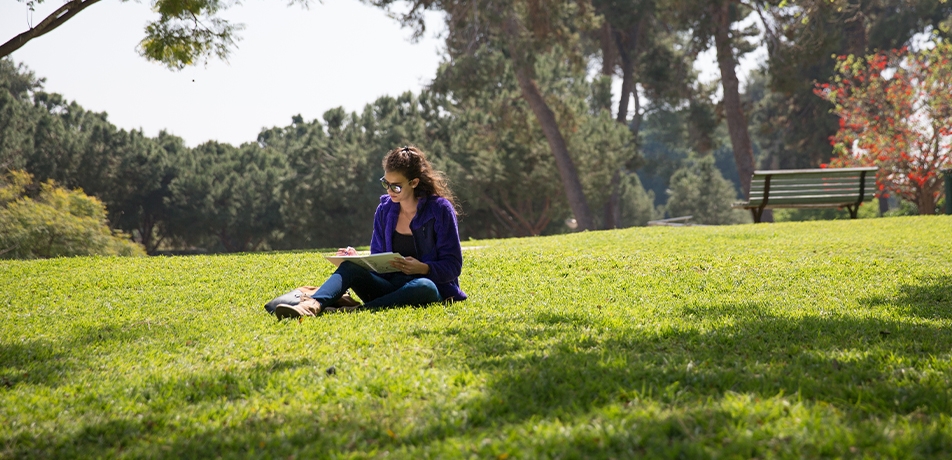The new normal for internationals on campus
The Kekst Office is helping foreign scientists and students during the pandemic
Briefs

In response to the coronavirus pandemic, the Gershon Kekst International Office has transformed into a hub for international scientists and students needing logistics assistance related to travel, quarantine, and family matters.
In March, some 60 students and postdocs from the Institute found themselves stuck abroad and unable to return to Israel. The task fell on Aileen Halbershtat, Head of the International Office Domain, and her team to figure out how to get them back—not exactly part of their job description, but the crux of their role remains the same: providing as much support as possible to the talented foreigners who have chosen to conduct research and studies at the Weizmann Institute.
The Kekst Office was established in 2018 to offer a range of services for international scientists and students around non-academic needs—like converting a driver’s license or registering children for school or finding housing. The staff also organize group trips throughout Israel, and offer a “home” on campus for Weizmann’s international population, where people can meet, form friendships, talk about life outside the lab, and work in the communal space. The Kekst Office team hosted cultural events nearly every month and for holidays of all kinds, evincing the diverse international makeup of the Weizmann population.
Now, says Ms. Halbershtat, “The emotional needs have changed.” It isn’t just about the logistics of securing a visa. There is a more personal element as well. People want to go home; they miss their families. In one particularly heartbreaking case, a postdoc was desperate to get home as his wife was due any day to deliver their first child, but there were no flights going in or out. He missed the birth.
For one parent from Asia, a two-week trip to Israel to visit her son (a PhD student) and his wife and child turned into a stay of several months. Another group of students found themselves stuck in Serbia for nearly five months, en route back to the Institute after visiting their home in China.
In constant flux
In the past, assisting a Weizmann student, fellow, or visiting scientist in getting to Israel involved a single email outlining visas, flights, health insurance, and housing. Today, with travel and quarantine requirements in constant flux, many government offices closed, and movement between countries limited, it’s a whole new game.
Now, each case is dealt with individually. “We have to understand where this student or scientist is in the world,” says Ms. Halbershtat. “What’s happening there right now? What restrictions are in place?” From there she and her team begin securing travel permits, visas, flights; setting up living arrangements, both initial quarantine housing (which must take place in a designated space on campus) and long-term housing immediately after; coordinating transportation from the airport, and making sure there is food in the refrigerator upon arrival. And if a flight gets cancelled, they must start the process all over again.
Small successes now give them reason to cheer. For instance, when a handful of Weizmann students from India found themselves stuck there and unable to get to Israel, the Kekst team joined forces with other Israeli institutions that had students due to arrive in Israel. Together, the group found an Israeli airliner in India and chartered a flight. There is now a WhatsApp group for all the international student coordinators in Israel, which, says Ms. Halbershtat, would probably not have happened otherwise.
“So many things have popped up out of necessity,” she adds. “The Weizmann Institute is an international institution. Weizmann without internationals is just not an option. So we do what it takes and we make sure Weizmann still feels like a home away from home.”








